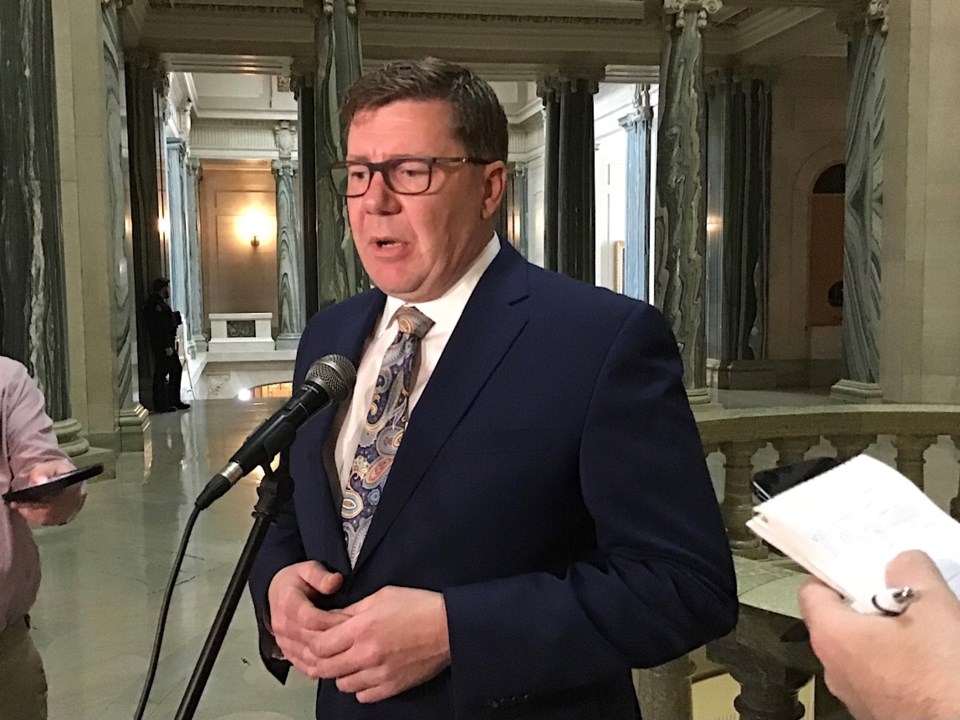REGINA - Provincial premiers are set to meet Monday afternoon in a conference call to discuss the offer from the federal government on the healthcare transfer.
Last week Prime Minister, Justin Trudeau announced a proposed $196 billion to the provinces and territories in health care transfers over a ten-year period. However only $46.2 billion was new funding, leading to expressions of disappointment from the Premiers that the amount was not higher.
Despite that disappointment, the indication from Premier Scott Moe is that the offer of more money is not something the provinces are likely to turn down.
“Any increase in the area of health care is most certainly appreciated, and it will be well applied in Saskatchewan,” said Moe. He said the meeting with the premiers would focus on “how we move forward at the Council of the Federation table, given that the offer was substantially less than the ask.”
The provincial premiers had been seeking an increase of the federal funding share to 35 per cent from 22 per cent, or an increase of $28 billion annually. But the offer from the federal government fell well short of that, prompting Premier Moe to issue a statement in which he stated the meeting "confirmed they have no interest" in СŔ¶ĘÓƵ a full funding partner.
“The details of the offer amount to a two per cent increase, and falls short in outlining a path forward for long term, sustainable funding that all Premiers have been calling for," Moe stated last week.
While Moe reiterated Monday to reporters that the offer wasn’t close to what was requested by the Premiers, he did say he did “not think anyone in Canada is of the mind that we can be rejecting or foregoing health investment.”
“However, it is an increase which equates to about a two per cent increase across the nation -- I think is going to translate to about a two per cent increase here in Saskatchewan as well," said Moe.
"So it is a lift in the federal portion of health care money. However, it is not significant in any way to change monumentally how we how we deliver health care as we have a provincial lift far beyond two per cent for the last number of years, and quite likely are looking at a lift beyond two per cent over the next number of years.”
As for how the province will likely apply the increase moving forward, Moe said one of the questions that was asked in the premiers’ meeting with the Feds last week is whether this money will be available for the budget this year, and the “indications are that we are hopeful that it will. So that's some of the discussion that will happen in the course of the next week or two.”
As to when they will engage with the federal government Moe told reporters he expects that to happen quite quickly. “It's a matter of weeks, not months,” said Moe.
Somewhat related, Moe confirmed to reporters that the province would not be creating a digital ID, nor accept any requirements for creation of a digital ID tied to healthcare funding. He did say, however, this was not something the federal government had requested or required.
Instead, the indication is it was in response to concerns from the public about the sharing of personal health information with the federal government.
"We had received the number of letters in the leadup to the meetings, requesting us not to consent to digital ID for healthcare funding," said Moe. He said no province should share healthcare records and added he didn't think those could be shared anyway under current legislation.
However, when it came to more aggregate or "macro" data, such as health care waiting lists or number of people with access to a primary care provider "much of that is already shared," said Moe.
He said there could be a broader conversation among the provinces on what aggregate data could be shared in the interest of benefitting or improving the system. But Moe emphasized "by no means will people's personal health care data be shared nor can it be legally, nor was it ever requested."






